The Japan Science and Technology Agency (JST), jointly with the Japan International Cooperation Agency (JICA), the University of Tsukuba, and the Japan−Africa Academic Network (JAAN), held an official side event of the Eighth Tokyo International Conference on African Development (TICAD8) titled "Japan−Africa Science Innovation Week — The Japan−Africa University Exchange Conference."
The event was broadcast live on August 22nd as a Zoom meeting and webinar. 263 people from 44 countries, 36 of which were countries and regions in Africa, including South Africa and Tunisia, participated in the event. The event was divided into two parts, the first being the Plenary session and the second being the President's Round Table Meeting, and was attended by 21 universities in Japan and Africa.
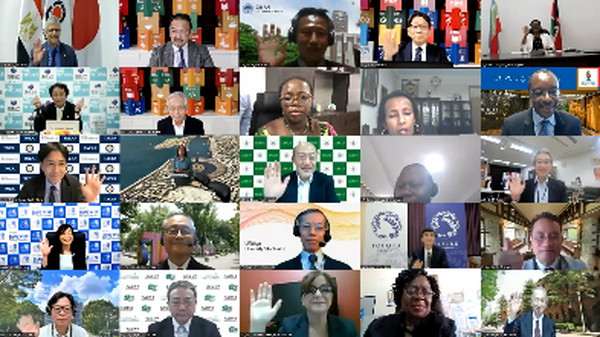
■Part 1 (Plenary session)
The event began with opening remarks from the organizer, JST President Kazuhito Hashimoto. President Hashimoto spoke about the importance of both regions considering the other an important partner and engaging in personnel exchanges for close cooperation. In order to achieve this, African people will be invited through the Sakura Science Exchange Program (SSP) starting in 2023, and the goal is to expand the program to 500 people per year in the future. Yosei Ide, State Minister of Education, Culture, Sports, Science and Technology, stated in his guest opening remarks that deepening mutual understanding by stimulating personnel exchange is very important in order to strengthen the quantity and quality of exchanges between the two regions.
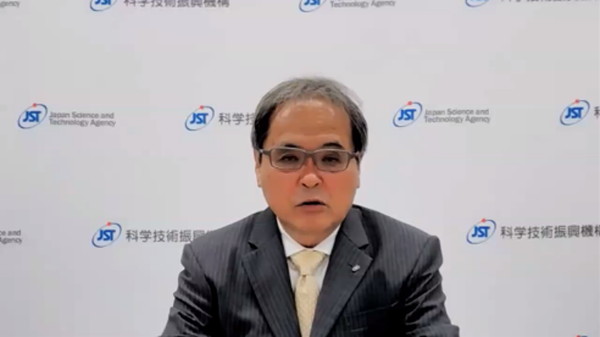
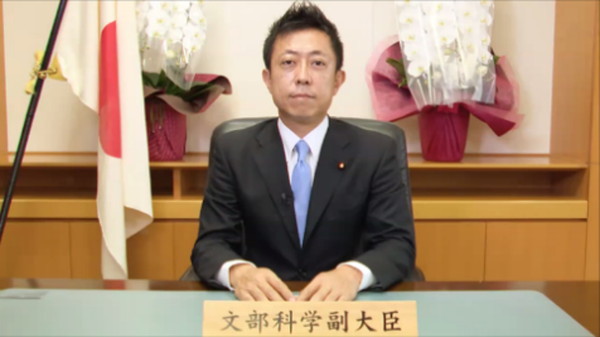
In his presentation, Yoichiro Matsumoto, Science and Technology Advisor to the Minister for Foreign Affairs, pointed out the significance of the SSP's expansion into Africa with a post−pandemic focus, and the importance of having researchers with an understanding of both Africa and Japan work together to solve various problems in the world. Amr Adly, President of the Egypt−Japan University of Science and Technology, stated that the university plays an important role in the field of STI as a bridge between African and Japanese universities, industries, and the governments. Kyosuke Nagata, President of the University of Tsukuba, pointed out the difficulty of finding partners in the development of relations with Africa and in ongoing academic exchanges by Japanese universities due to a lack of information, knowledge, human resources, and experience. He also suggested the need for a new and open collaboration using the organizational network that utilizes JAAN and other organizations, which have already established relationships. Victoria Wambui Ngumi, Vice Chancellor of Jomo Kenyatta University of Agriculture and Technology, a national university in Kenya, stated that the Japanese government has supported the development of human resources and the promotion of understanding of Japan in Africa, and spoke about her expectations on how advanced research with the industry would develop in the areas of higher education and STI by establishing a partnership with the Japanese government through the JICA.
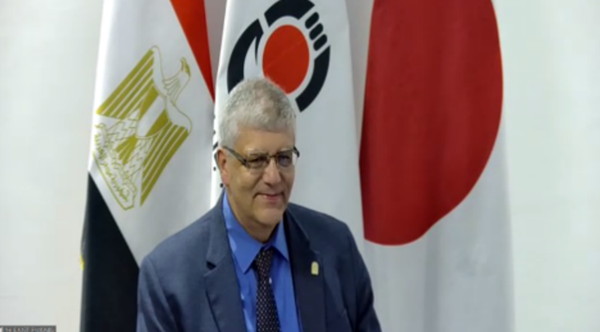
Egypt−Japan University of Science and Technology
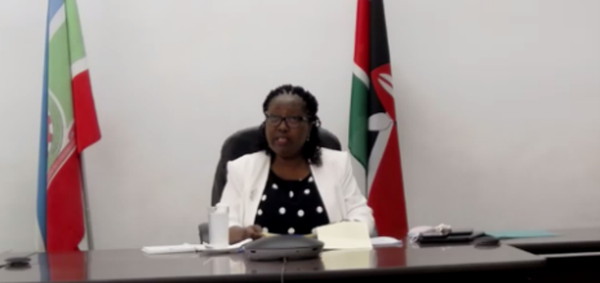
Jomo Kenyatta University of Agriculture and Technology
Following the lecture and an explanation of the SSP program's outline, JST proposed inviting young people — including high school, university and graduate school students — from Africa to Japan each year through SSP from FY2023, aiming to increase this to 500 people per year. In response to the proposal, the “Declaration for the Japan−Africa University Exchange Conference 2022” was confirmed. With the approval and applause from the participating universities and other participants, the Declaration was adopted and Part 1 was concluded.
■Part 2 (President's Round Table Meeting)
Participants introduced their universities and held discussions in two separate groups. In the discussions, opinions were expressed on matters such as the need for master's and doctorate personnel exchanges, the importance of leading academic and human resource exchanges at universities in both regions by utilizing programs such as SSP and the Science and Technology Research Partnership for Sustainable Development (SATREPS), and the effectiveness of the SSP considering the importance of building up a large number of small−scale yet positive examples of human resource exchanges.
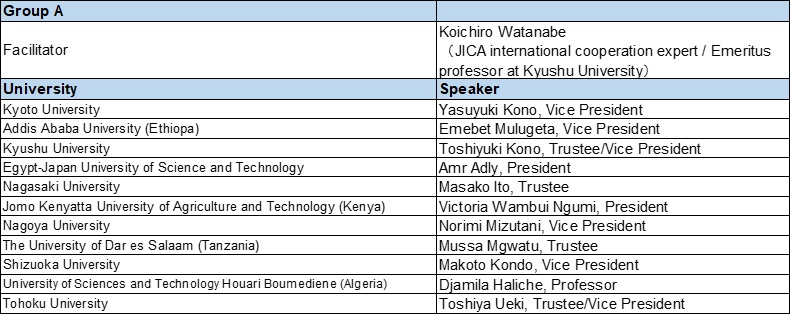
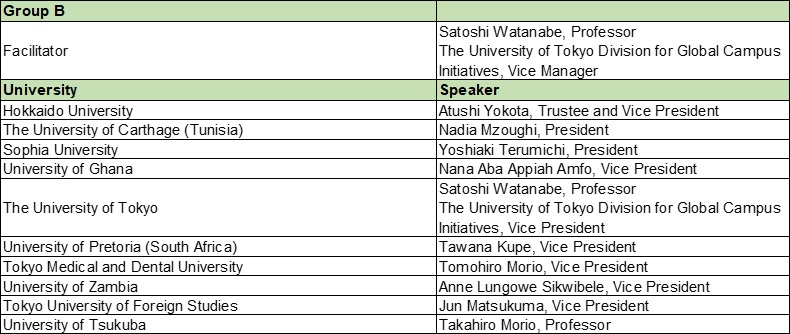
In the closing remarks, Akira Koda, Vice President of JST, expressed his anticipation for actual inter−university exchange triggered by this event, and ended the meeting as a success.